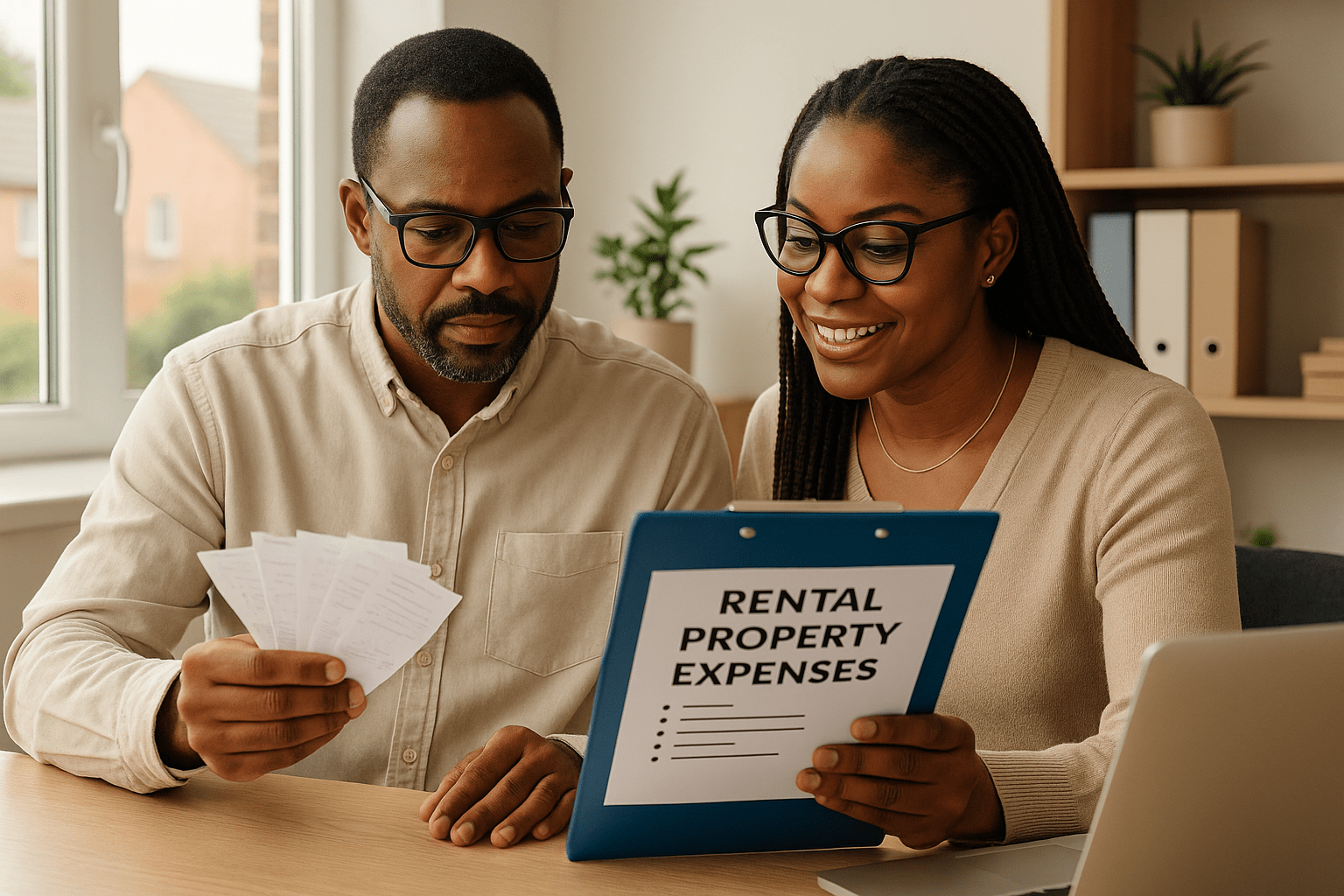Welcome to the world of Rental Property ownership. If you’re a Landlord or thinking about becoming one, it’s crucial to understand your business expenses if you want to maximise your profits and minimise your tax liability.
Just like every business, owning rental property comes with its fair share of costs. In this blog, we’ll look at the various expenses you can claim as a rental property owner — and keep more of your hard-earned money in your pocket.
Understanding Rental Property Expenses
When you own rental property, you’re running a business, and that means you can deduct certain expenses from your taxable income. It’s vital, though, that these expenses are “wholly and exclusively” incurred for the purpose of renting out the property.
So, what are the key categories of expenses you can claim?
1. Mortgage Interest
One of your most significant expenses as a rental property owner is likely to be paying the mortgage interest. While you can no longer deduct the full interest from your rental income, you can claim a 20% tax credit on the interest you pay. This can still result in substantial tax savings.
It’s important to remember that you can’t deduct the full interest amount. Instead, you claim a 20% tax credit on the interest paid. Make sure you keep your mortgage statements so you can accurately calculate the interest each year.
2. Property Management Fees
If you hire a Property Management company to handle the day-to-day operations of your rental property, their fees are fully deductible. This includes costs for tenant screening, rent collection, maintenance coordination and more.
When you’re looking for a property management company, compare the various companies carefully to find one that offers the best value for your needs.
3. Repairs and Maintenance
Regular maintenance and repairs are essential for keeping your property in good condition and ensuring tenant satisfaction. You can deduct the costs of repairs, such as painting, fixing leaky taps or replacing broken appliances.
It’s important to remember, though, that this only applies to repairs. Improvements that increase the property’s value, like adding a new bathroom, must be capitalised and depreciated over time.
4. Insurance Premiums
It’s absolutely essential to have landlord insurance to protect your investment. The premiums you pay for property insurance, liability insurance and any additional coverage are all deductible expenses.
It’s a good idea to shop around for insurance quotes, in order to ensure you’re getting the best coverage at the best price.
5. Utilities
If you cover utilities for your rental property, such as Water, Gas, Electricity or even Council Tax, these costs are deductible. However, if your tenants pay for their own utilities, you can’t claim these expenses.
It may be a good idea to include some utilities in the rent to attract tenants, but make sure you factor these costs into your overall pricing strategy.
6. Advertising and Marketing
You want to attract quality tenants for your rental property, but you can’t just assume they’ll find you. This is likely to need an investment in advertising and marketing. Costs for online listings, signage and promotional materials are all deductible.
Listings are more effective if you use high-quality photos and engaging descriptions — your property will stand out above the others.
7. Legal and Professional Fees
If you hire Professionals for legal advice, accounting services or for preparing your Tax Return or accounts, their fees are deductible. For example, you might incur costs for drafting lease agreements or consulting with a Solicitor, and you can claim for these.
That’s a double win, since investing in Professional help can save you money in the long run by ensuring you comply with laws and regulations.
8. Travel Expenses
If you need to go to your rental property for inspections, repairs or meetings with tenants, you can deduct any travel expenses. If you use your vehicle, you can claim mileage, or if you travel by public transport, you can get the cost of your tickets back.
This means it’s essential to keep a log of your travel dates, purposes and distances, so you can accurately calculate your deductions.
9. Capital Expenses
Capital expenses are costs you incur in relation to your rental property, but which can’t be claimed straight away when you submit your Tax Return to HMRC. These are claimed when the property is sold, and you can read more about it here: https://gracecertifiedaccountants.co.uk/the-difference-between-capital-and-revenue-expenses-on-your-rental-property/
Because of this, you’ll need to keep separate records of your Revenue (day-to-day) expenses and your Capital expenses.
Make Sure You Claim All Your Expenses
Owning Rental Property can be a rewarding venture, especially when you’re fully aware of all the business expenses you can claim. If you keep detailed records and stay organised, you can maximise your deductions and minimise your tax liability.
So, whether you’re a seasoned landlord or just starting out, embrace the journey of rental property ownership and enjoy the financial benefits it can bring.
💡 Related Reading: If you’re thinking of selling your rental property, read our guide to Capital Gains Tax here: https://gracecertifiedaccountants.co.uk/capital-gains-tax-on-property-what-you-need-to-know/
If you have any questions or need assistance, feel free to get in touch with me here at Grace Certified Accountants.
Happy renting!
